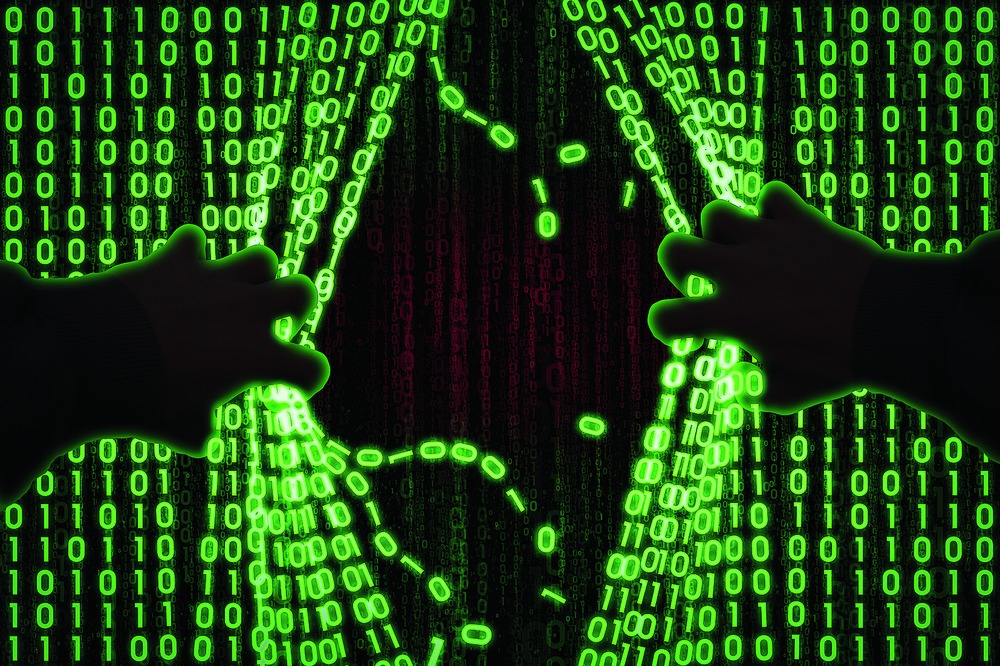
These are dangerous times. Across globally-connected computer networks, a cyber dissent of unimaginable proportions is brewing. The Antichrist is the hacker who is steeped in code, intelligent and imaginative enough to penetrate the hidden recesses of the most complex and hardwired of networks, reckless and completely amoral.
Last week, the US government charged two Russian intelligence officers and two hackers over the Yahoo! data breach that affected nearly one billion user accounts, about the same as India's population. Russia's hackers, supported by their government, have also been accused of upsetting the 2016 US elections. In the first week of March, digital repository WikiLeaks released documents describing spying and hacking tools - including one rather poetically named Weeping Angels - developed by US Secret Service or CIA agents. Closer home, China is getting ready to flick the switch on political adversary Taiwan's computers and communication networks. Beijing has been known to breach India's secure strategic networks.
In such a scenario, the hacker is also the redeemer. The ethical hacker, in fact, uses technical expertise to fortify systems instead of exploiting them.
Be it the US, Russia, Israel or China, legions of both strains of hackers are swelling. But India is another story.
Despite all talk about Indians and their IT edge, not to mention the fabled Silicon Valley connection, it seems we have not built capability to defend our digital assets; we just aren't doing enough. Joydeep Bhattacharya, chief operating officer of Calcutta-based IT company TCG Digital, draws attention to India's National Cyber Security Policy. Formulated in 2013, the policy specifies the need to create "a workforce of 5,00,000 professionals skilled in cyber security" - five times the current number.
There are some disparate groups of hackers who work for the government of India but they are neither talented nor an organised force. According to experts, all they can do is attack some Pakistani sites and indulge in jingoism. That is India's level of preparedness when it comes to hacking.
Recently, the home ministry told Parliament that in 2016, 199 websites of central ministries and state governments were hacked. There was also a massive breach of debit cards of Indian banks courtesy a malware (software designed to damage or gain access to a computer system) last year. This year, on January 1, the website of the National Security Guard, the lead counter terror force of India, was defaced. And Chinese hackers have, apparently more than once, entered the Defence Research and Development Organization's computers and accessed classified information.
If none of this has commanded as much attention as beef-eating or nationalism, it is because here the enemy is invisible and so far, impossible to contain, and therefore the issue is better swept under the carpet. India's own cyber passiveness - low broadband connectivity and PC usage and vast stretches of offline geographies - also helps downplay the threat perception. But very soon none of this will be enough and a more cyber active approach will have to be thought through and followed up aggressively.
Abir Atarthy is an ethical hacker who is also a senior cyber security analyst at TCG Digital. According to him, coding should be introduced in middle school. "As early as 12 or 13 years... If you learn to create codes or programs you can break or hack into other's codes," he says.
Russians and Chinese whiz kids can apparently think up almost overnight, hacking tools and malware that no antivirus or Internet security system can detect. Some of these can secretly penetrate a system, stay hidden and allow an "operator" to control the system from a remote location.
Major General (retired) Pradyot K. Mallik, who used to work with the Institute of Defence Studies and Analyses, a Delhi-based think tank of strategic and security issues, says India doesn't have hackers with "extraordinary skills" who can be trained quickly to be proficient cyber warriors. And almost everyone agrees that India's countless engineering colleges "teach nothing that's useful" and have mostly churned out tech coolies who can perform only back office jobs outsourced by companies in the US, Europe and Australia.
It is imperative that tech schools teach languages more specific to addressing cyber security concerns, such as Python rather than Java.
And then, of course, there is a need for the government to encourage serious innovation in the field of cyber defence. In Russia, hackers are recruited by the government in collaboration with the Russian mafia. In China, hackers have state backing. Samrat Das, an ethical hacker who works as a security consultant in the Indian arm of Deloitte US software firm, emphasises on the need to have an efficient and well-funded system.
Kirit Sankar Gupta, director, Indian School of Ethical Hacking, Calcutta, agrees. He points out that when it comes to bug bounty hunters, India ranks among the top five countries in the world. Bug bounty hunters are geeks who spot bugs, errors and security flaws before malicious hackers or criminals. India's ranking is proof that talent is not scarce. Says Gupta, "Hackers are rewarded based on the severity of security flaws. International companies pay hundreds of thousands of dollars... But in India, talented hackers don't get appropriate incentives."
In an email from Canada, Terry Cutler, an international security expert and ethical hacker, tells The Telegraph how managers and administrators don't feel the urgency of bucking up IT security unless their sites are under severe attack. "They try to sweep the issue under the rug, thinking 'it will never happen to us'."
This is what worries Bhattacharya of TCG Digital too. He urges, "The country urgently needs to develop an elite cadre of cyber warriors. The biggest concern is not merely the advancing threats but how to find people who can effectively and intelligently respond to cyber terrorism, cyber crimes and nation-sponsored attacks."
After all, it takes a hacker to keep more hackers at bay.











